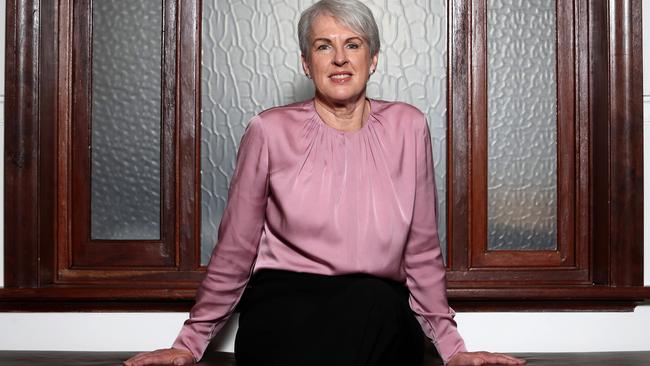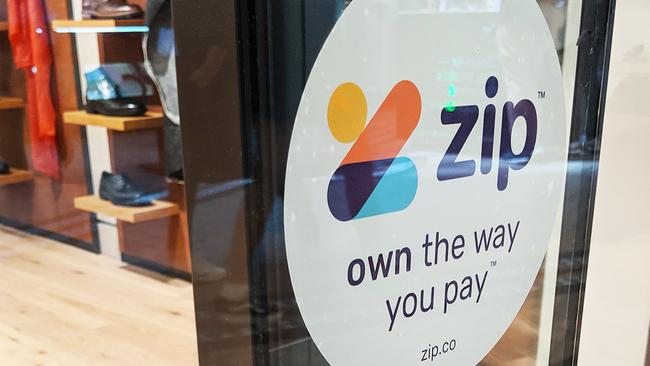Zip Co chair Diane Smith-Gander says the sooner buy now, pay later is regulated, the better
Zip Co chair Diane Smith-Gander says proper regulation of the buy now, pay later industry can’t come soon enough as players jostle for survival.

Zip Co chair Diane Smith-Gander says the sooner buy now, pay later is regulated properly, “the better”.
The ex-Broadspectrum and Wesfarmers director became Zip chair in early 2021, and in an interview said the federal government should bring the BNPL industry into traditional credit regulation as early as possible.
“It is important to continue to allow people to have the choice of BNPL,” Ms Smith-Gander said.
“But it is credit. Zip has never said it is anything but credit. It needs to have protection for consumers.
“It needs to have proper dispute resolution, proper hardship provisions, proper compensation arrangements if things go wrong, rules around marketing and caps on fees.
“The sooner it is brought in, the better it will be for consumers.”
Ms Smith-Ganders comments come as the government considers its regulatory options, even as the sector sinks amid rising interest rates and low profitability.
Treasury has run been running consultations after releasing a discussion paper outling three possible regulatory options. The least interventionist would amend the Credit Act to impose an industry-specific requirement for BNPL providers to check that a product is not unaffordable when offered.
Under that option, BNPL providers would not need a credit licence. That is the mode backed by Zip rival Afterpay, now Block.

The second option requires players to obtain and keep a credit licence, and abide by responsible lending rules that would be specific to BNPL, so firms would determine if instalment products were unsuitable for consumers.
The third would mean BNPL companies were covered by the same rules as products such as credit cards and home loans. They would need a licence and would be required to conduct responsible lending checks on customers.
The Weekend Australian reported on Saturday the third option was favoured by Westpac, which argued in its Treasury submission that more than half the customers who spoke to the bank about hardship solutions had a BNPL liability and those with two or more BNPL accounts were more than twice as likely to be in arrears on their credit cards.
While some players conduct customer credit and affordability checks, many do not as it is not legally required. BNPL products are lightly regulated because they typically use an exemption for interest-free offerings.
Ms Smith-Gander said Zip, which has made a submission to the Treasury consultation, has a credit licence because of its origins as a credit provider before it moved into the BNPL business.
The company has two major products – Zip Pay, a BNPL product with a credit limit of $1000, and Zip Money, which provides credit of more than $1000.
“Zip always had a credit licence because the first product that it offered was a Zip money product,” said Ms Smith-Gander. “The genesis of our company was very different from Afterpay which means we built a different DNA right from the beginning.”
But like other BNPL providers, Zip has seen its market capitalisation slide in the last two years.
Zip shares were trading at over $12 in January 2021, falling below $4 at the start of 2022. On Friday, Zip shares closed down 2c at 60c.
Ms Smith-Gander said the sector would be better off once it was properly regulated.
“At the moment, the regulation of the BNPL sector is not fit for purpose and it needs to change,” she said.
She said the market was watching to see how the BNPL sector developed as it dealt with higher rates and a slowing economy in a highly competitive market.
“The market is watching right now to see how it’s going to settle out – who’s going to be the winners and who’ll be left standing after the dust settles.”
Ms Smith-Gander said Zip was focusing on moving into profitability. In July, Zip abandoned its proposed merger with Sezzle with markets remaining difficult. Zip has also closed operations in the UK and Singapore after a review.
“We’re looking at our other businesses to work out what is the appropriate way to work in those different jurisdictions,” said Ms Smith-Gander, adding that she expected the local sector to grow despite the economic challenges.
Those challenges would see an increase in use of BNPL products, Ms Smith-Gander said.
“The more challenging the economic circumstances, the more relevant BNPL becomes to people.” “We are looking forward to regulation which will increase consumer confidence (in BNPL) and consumer protection.”
“It will mean more active customers. We’re looking forward to profitability in all the markets we operate in.”
Many younger consumers were wary of dealing with banks and having credit cards, she said.
“Credit cards have a brand problem with younger Australians,” she said. “They are associated with the big banks. (Younger consumers) are wary of bank products. They have seen evidence of poor behaviour.”
She said many younger people who did not have the same relationship with their banks as their parents, because of the high cost of housing was keeping them out of the market. She said high deposits needed for mortgages was seeing fewer young people with strong relationships with banks, leaving them prepared to look for other sources of finance.
“The motivator that people had to have a relationship with a bank — to be able to save for a deposit and then get a house — is weakening,” she said.
“The younger consumer lives and dies on their phone. They want everything to be mobile and instantly available.”
Ms Smith-Gander said the current lack of regulation of the BNPL sector meant providers did not know how many other accounts their customers had with rivals – making it harder to assess their credit worthiness.
At the moment, she said, customers could have many BNPL accounts which were unknown to credit providers.
“They can be layering one account on top of the other,” she said. “Having visibility of that when you are extending credit is one of the definitions of fit for purpose regulation.”




To join the conversation, please log in. Don't have an account? Register
Join the conversation, you are commenting as Logout